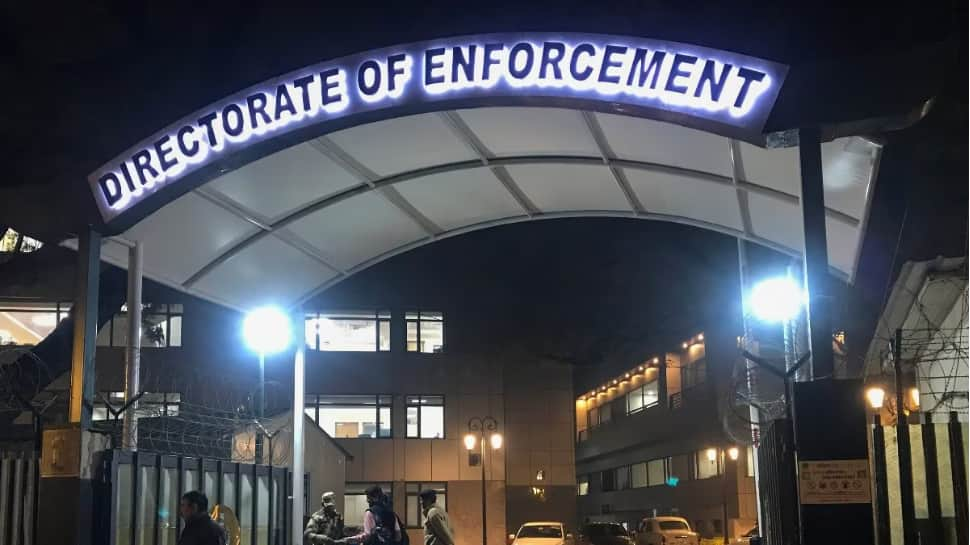 |
|
The incident unfolded during a raid conducted by the Enforcement Directorate (ED) team in Bijwasan, Delhi, on Thursday. The team, led by Suraj Yadav, was investigating a money laundering case linked to the PYYPL application, a mobile application suspected of facilitating cyber fraud. During the search of a farmhouse owned by chartered accountant Ashok Kumar Sharma, a member of the ED team was allegedly attacked and sustained minor injuries. The swift response of the Kapashera police station, which dispatched officers to the scene upon receiving information about the altercation, highlights the gravity of the situation and underscores the importance of protecting law enforcement officials carrying out their duties. The injured Enforcement Officer, despite sustaining injuries, continued participating in the search after receiving first aid, showcasing unwavering commitment to upholding the law. The attack raises serious concerns about the safety of law enforcement personnel while conducting sensitive operations. This event underscores the need for greater security measures and protection for investigation teams involved in such high-risk operations. The details of the attack, including the nature and extent of the injuries sustained by the ED officer, need to be thoroughly investigated to bring the perpetrators to justice and prevent similar incidents in the future. The involvement of CRPF officers in the raiding team also highlights the complexities and high-stakes nature of the operation.
The investigation's focus centers on the PYYPL application and its alleged role in facilitating various cyber crimes, including phishing, QR code cheating, and part-time job scams. The ED's findings indicate a sophisticated network of fraud, where funds obtained through these illegal activities were layered through approximately 15,000 ‘mule’ accounts before being withdrawn using debit and credit cards. This layering technique is a common tactic used by criminals to obfuscate the trail of illicit funds and make it harder for law enforcement to trace the money. Further investigation revealed that the money was then used to top up virtual accounts on the UAE-based Pyypl payment aggregator, and ultimately used to acquire cryptocurrency. The alleged involvement of chartered accountants in this network points to a calculated and organized criminal enterprise, emphasizing the need for thorough investigation to uncover the full extent of the conspiracy and prosecute all those involved. The use of cryptocurrency further complicates the investigation due to the anonymous and decentralized nature of the currency. Unraveling these intricate financial transactions requires advanced forensic accounting skills and international cooperation, highlighting the complexities of modern cybercrime investigations.
The apprehension of Yash, a relative of the farmhouse owner Ashok Kumar Sharma, in connection with the attack marks a significant step in the ongoing investigation. The police statement confirms that Yash is being interrogated, suggesting that he may be a key witness or suspect in the attack. As the investigation progresses, it is crucial to gather substantial evidence to support the allegations against both Sharma and Yash, ensuring a fair trial and a just outcome. The ongoing investigation emphasizes the multifaceted nature of the case, encompassing not only the cyber fraud but also the physical attack on the ED team. While the primary focus remains on the cyber fraud investigation, the subsequent attack adds a layer of complexity to the case, requiring parallel investigations to bring all those responsible to justice. The involvement of multiple agencies, including the ED, Delhi Police, I4C, and FIU, highlights the collaborative effort required to tackle complex criminal networks involved in cybercrime. The cooperation between these agencies is essential to effectively investigate and prosecute the perpetrators involved in both the cyber fraud and the assault on the ED team. It also demonstrates the transnational nature of cybercrime, requiring international collaboration to trace the flow of funds and apprehend individuals involved in the operation.
The incident underscores the increasing challenges faced by law enforcement agencies in combating sophisticated cybercrimes. The use of ‘mule’ accounts, cryptocurrency, and international payment aggregators highlights the advanced techniques used by cybercriminals to conceal their activities and launder money. This case serves as a stark reminder of the need for improved legislation, enhanced investigative capabilities, and increased international cooperation to effectively combat cybercrime. Furthermore, it highlights the need for greater protection and safety measures for law enforcement officials working on the front lines of the fight against cybercrime. The physical attack on the ED team underscores the risks faced by investigators in dealing with perpetrators who resort to violence. The investigation should consider strengthening security protocols during future operations to ensure the safety of the investigation team. The long-term implications of this case extend beyond the immediate outcome; it highlights a systematic approach to fighting cybercrime by law enforcement agencies. This incident could lead to future policy changes, enhanced training for law enforcement officers, and improved coordination between agencies to address the growing threat of cybercrime. The success of this investigation will largely depend on the ability of law enforcement agencies to effectively gather evidence, analyze complex financial transactions, and cooperate with international authorities to trace the flow of illicit funds.
Source: ED Team Attacked During Cyber Fraud Raid In Delhi Farmhouse, Officer Injured
